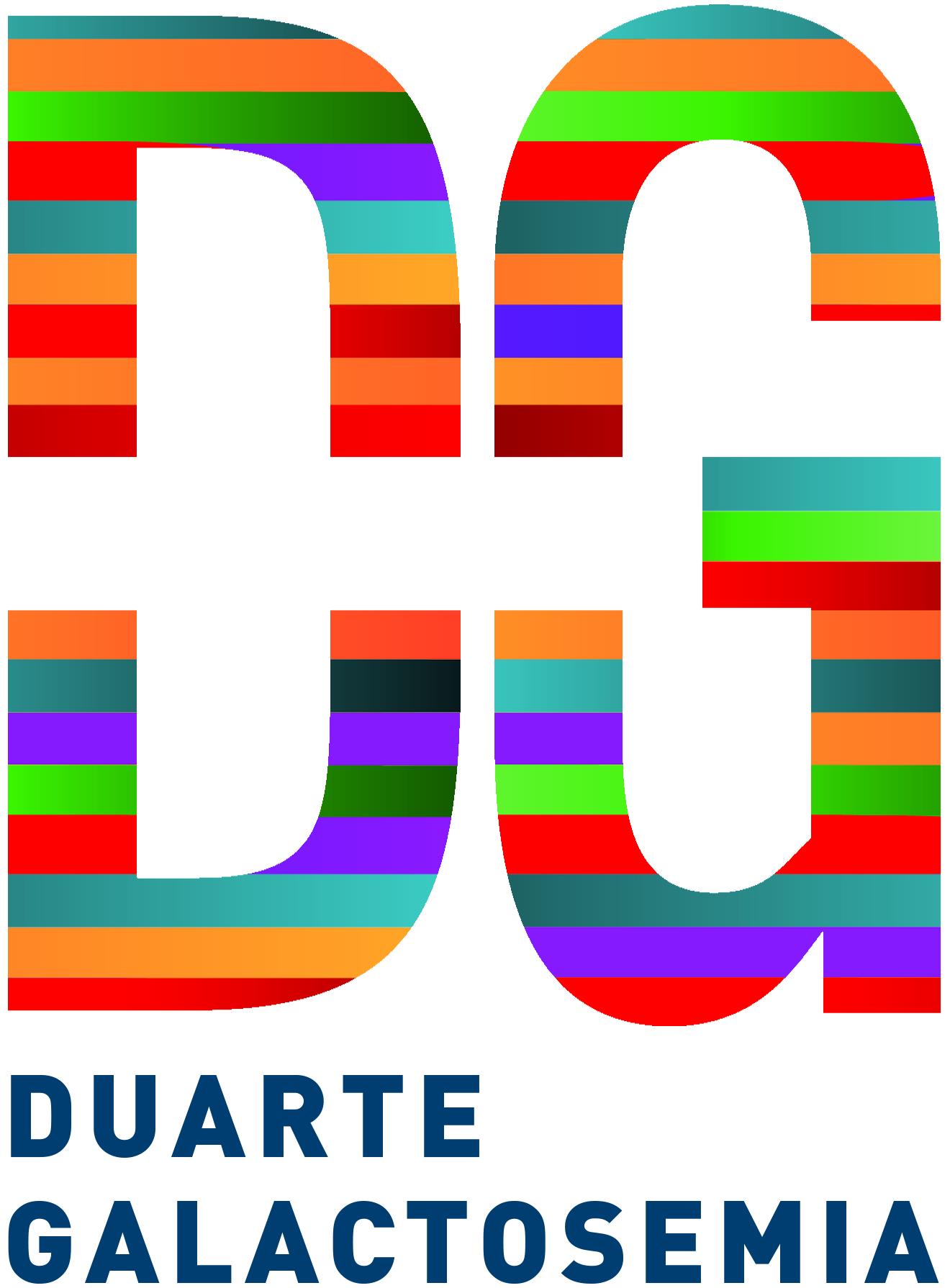ABOUT DUARTE GALACTOSEMIA (DG)






■
Duarte galactosemia (DG) is an inherited condition associated with reduced ability to metabolize galactose.
■
Galactose is a natural sugar found at high levels in milk and many dairy products, and at low levels in many other foods. It is also produced at low levels by the human body.
■
DG results from a partial deficiency of the enzyme galactose-1-phosphate uridylyltransferase (GALT).
■
DG is different from classic galactosemia. A child with classic galactosemia has little if any GALT activity; a child with DG has about 25% of the normal level of GALT activity.
■
The prevalence of DG is estimated at up to about 1 in 4,000 infants born in the United States; the true prevalence is not known.
■
DG is considered by most healthcare professionals to be clinically mild. Some infants with DG may show acute symptoms while drinking milk, but most do not. To be clear, infants who do not have any form of galactosemia also sometimes show sensitivity to milk, so if an infant with DG does show acute symptoms following exposure to milk the problem might be milk sensitivity, but not galactose sensitivity.
■
For many decades outcomes in DG were poorly understood. However, a recent study of 350 children found no significant differences in developmental outcomes tested between children with DG and controls, and the outcomes for DG children did not differ between those who were exposed to milk in infancy and those who were not. Please click here for more information about this study.
■
For most couples who already have a child with DG, there is a 1 in 4 chance that each subsequent child will also have DG. In rare cases, one parent actually has DG while the other parent is a carrier for a G mutation (GN). For these couples, there is a 1 in 4 chance that each subsequent child will have DG, and also a 1 in 4 chance that each subsequent child will have classic galactosemia.
■
Due to regional differences in newborn screening (NBS) protocols some infants who have DG are identified by NBS, but others are not.
■
DG may also be referred to by other names, including Duarte variant galactosemia or biochemical variant galactosemia.



